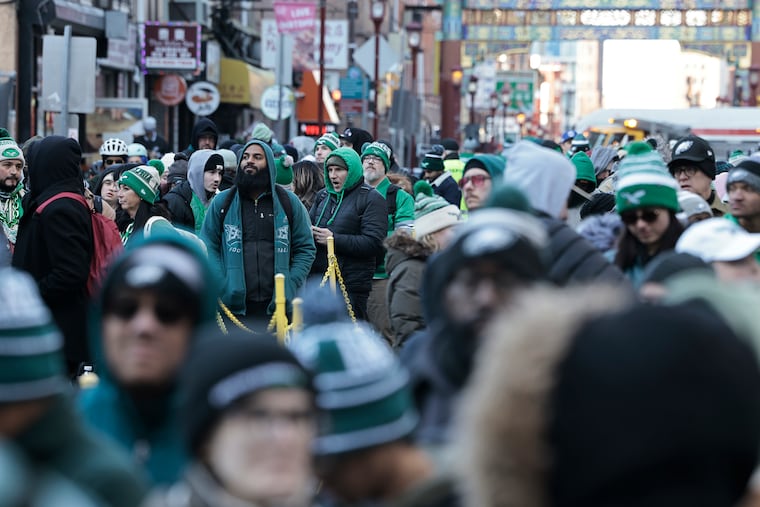SEPTA survived the Eagles parade. Now planners say bring on the World Cup, 250th anniversary of the U.S.
There were no transit-related disasters, but SEPTA has plans for how to improve going forward.

Now for the Big Ones.
SEPTA survived the Eagles parade, moving more than 400,000 people in and out of the city in a compressed period of time, with some glitches, overcrowding, and tense moments but no glaring transit-related disasters.
The powers that be were pleased, but not satisfied.
Every detail of SEPTA’s parade performance has been broken down and analyzed by Shakirah Smith, manager for special events, and her operations team in preparation for the test of 2026.
Philadelphia is hosting FIFA World Cup matches and Fan Fest, an international mega-event spread over more than 30 days, beginning in June, and the events of the nation’s 250th birthday celebration, as well as Major League Baseball’s All-Star Game at Citizens Bank Park in July. NCAA men’s basketball tournament games will be at the Wells Fargo Center in March.
“We keep the algorithm — our recipe — for big events on file, and we like to do continuous improvement from the after-actions and lessons learned,” Smith said in an interview.
Several of the events will overlap, and SEPTA needs to figure out how to ferry hundreds of thousands of people to venues across the city with few breaks between events.
SEPTA says it had about 320,000 riders on the Broad Street and Market-Frankford Lines for the Valentine’s Day victory parade, fares paid by sponsors. About 80,000 people used Regional Rail commuter lines.
The plan called for about 70 Regional Rail trains to accommodate 70,000 people; SEPTA put on extra trains.
Among the snags SEPTA has identified: Jefferson Station was overwhelmed as thousands tried to leave town earlier than planned, while the Art Museum ceremony was still going on. Some trains were not yet ready to be boarded. People had to queue up for blocks to get into the station.
The MFL station at 11th Street was mobbed as well, concentrating huge crowds on East Market Street.
For future big events, SEPTA would plan to have extra personnel at the street level to guide people, as well as chain barriers to organize the lines, spokesperson Andrew Busch said.
Next year’s events will bring twists. For instance, FIFA’s Fan Fest will be at Lemon Hill in Fairmount Park. With no rail service in the area, SEPTA will need to figure out how to organize enough buses for visitors.
Transit planners have an advantage with the 2026 events: time.
“We know the dates. We know that it’s happening. We know that it’s coming,” Smith said.
The Super Bowl ended about 10:30 p.m. on Sunday, Feb. 9, and, while much of the day’s plan was ready, SEPTA had just hours to apply the finishing touches and “activate,” Smith said. The agency could not announce the service plan to the public until the Eagles and the city gave the green light by Monday afternoon.
“Most of us were at work to 3 or 4 o’clock in the morning,” Smith said. “We shut our eyes for maybe a few minutes, then we opened them right up and started mobilizing.”
Bring on 2026, she said: “We’re work soldiers, so we’re ready to do it.”